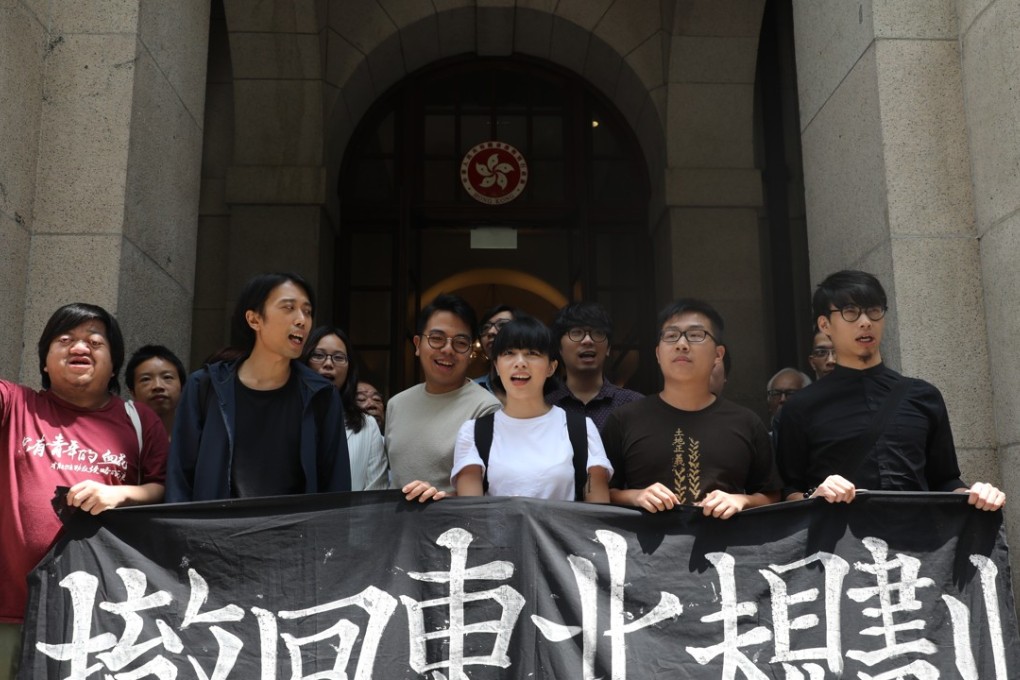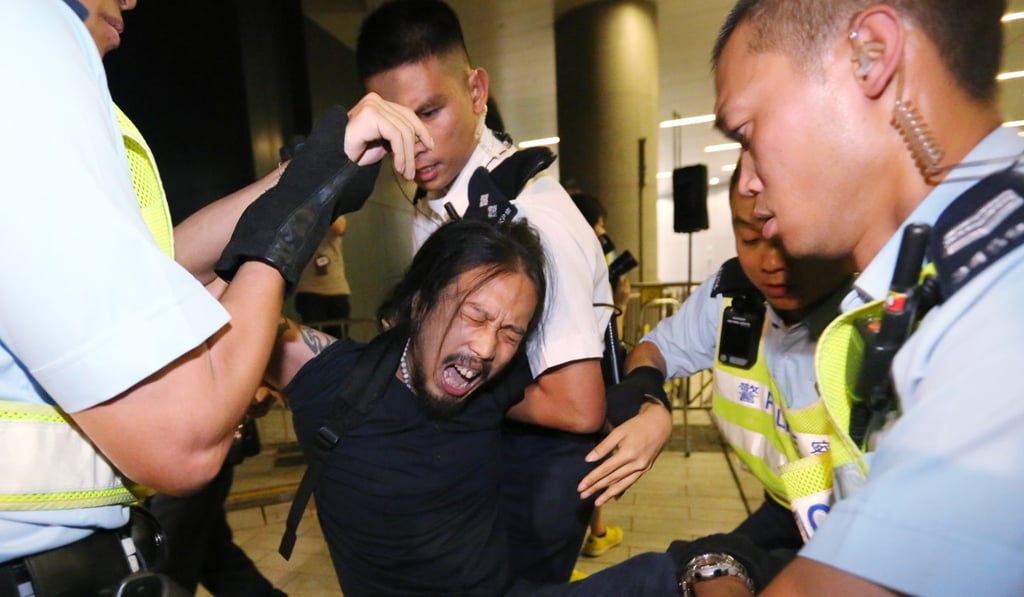Pro-democracy activists freed by Hong Kong's highest court on grounds they suffered a grave injustice after jailing for ‘extremely violent’ protest
Cheers and applause greets decision at Court of Final Appeal as group of 13, who were originally sentenced to community service, are released immediately

Thirteen activists jailed over an “extremely violent” 2014 protest against government development plans for the New Territories were freed on Friday after winning their appeal at Hong Kong’s top court, which ruled in their favour on the grounds of “grave injustice”.
Chief Justice Geoffrey Ma Tao-li announced the Court of Final Appeal’s decision immediately after defence lawyers had completed their argument that the defendants had been subjected to “substantial and grave injustice”, when the lower appellate court replaced their community service orders with jail terms of up to 13 months.
“The appeal is allowed, the sentences are set aside,” Ma said.
The court will reveal its reasons in detail for the ruling at a later date.

Loud cheers and applause erupted as soon as the activists emerged from the dock to greet their families and friends, who filled the courtroom and its side chamber to watch.